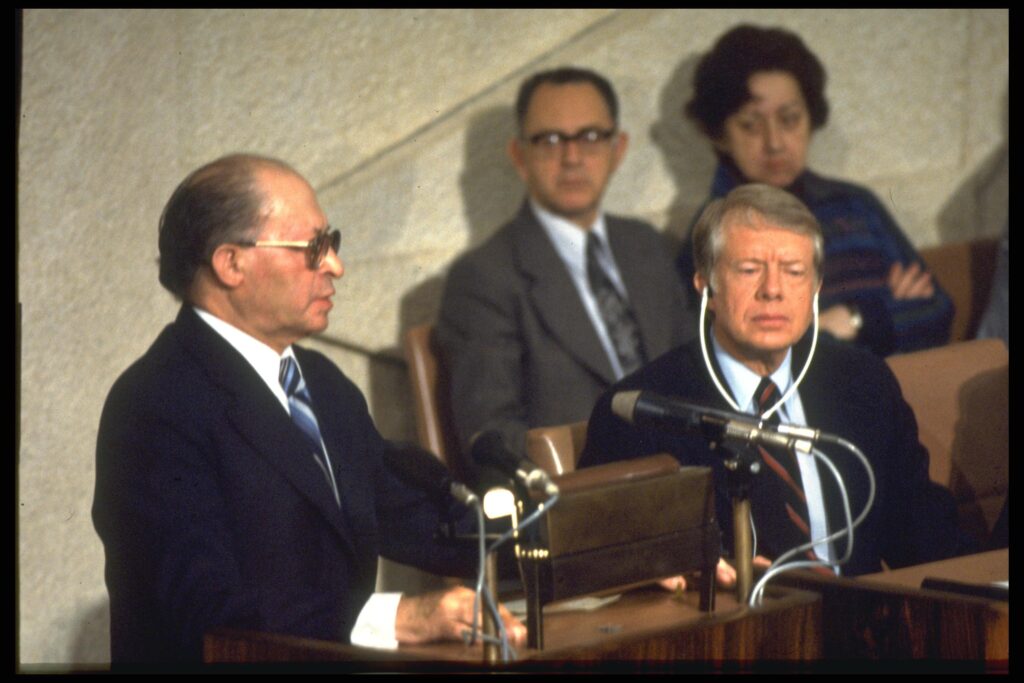Embedded in the September 17, 1978 Camp David Accords were broad outlines for an Egyptian-Israeli Peace Treaty and a Framework for Palestinian autonomy. The details of both remained to be negotiated. Yet, obstacles to implementation of the Accords appeared almost immediately.
Reliable resources for deeper Israel understanding
Embrace informed content on Israel, the Middle East and the Diaspora.
Begin with 7 days free to explore CIE’s rich sources, expert analyses and guided knowledge building.
$39 / year
JOIN CIE+
Already have a CIE+ account?
SIGN IN









